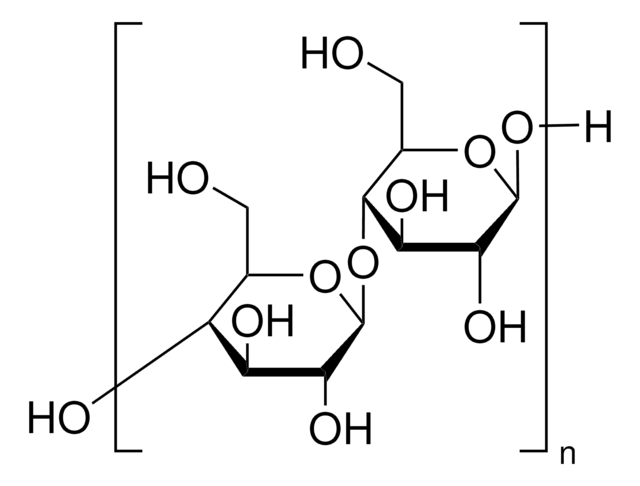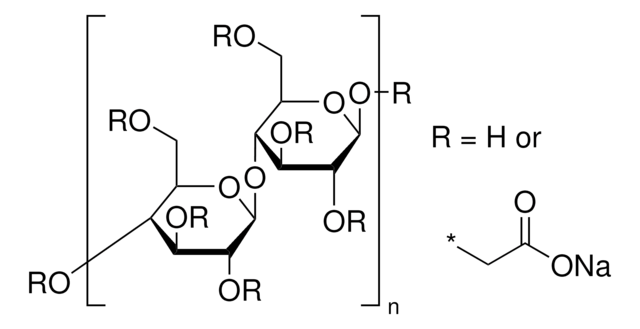435244
Cellulose
colloidal, microcrystalline
Synonym(s):
Cellulose powder, Cotton linters
About This Item
Recommended Products
form
colloidal, microcrystalline
Quality Level
contains
10.0-20.0% sodium carboxymethyl cellulose as stabilizer
particle size
+65-+325 mesh
viscosity
50-150 cP, 2.6 wt. % in H2O, Brookfield RTV, spindle #1 (20 rpm)(lit.)
bulk density
0.6 g/mL (25°C)
InChI
1S/C12H22O11/c13-1-3-5(15)6(16)9(19)12(22-3)23-10-4(2-14)21-11(20)8(18)7(10)17/h3-20H,1-2H2/t3?,4?,5?,6?,7?,8?,9?,10-,11?,12+/m1/s1
InChI key
GUBGYTABKSRVRQ-WFVLMXAXSA-N
Looking for similar products? Visit Product Comparison Guide
Related Categories
Application
Features and Benefits
Storage Class
11 - Combustible Solids
wgk_germany
WGK 1
flash_point_f
Not applicable
flash_point_c
Not applicable
Certificates of Analysis (COA)
Search for Certificates of Analysis (COA) by entering the products Lot/Batch Number. Lot and Batch Numbers can be found on a product’s label following the words ‘Lot’ or ‘Batch’.
Already Own This Product?
Find documentation for the products that you have recently purchased in the Document Library.
Customers Also Viewed
Our team of scientists has experience in all areas of research including Life Science, Material Science, Chemical Synthesis, Chromatography, Analytical and many others.
Contact Technical Service
